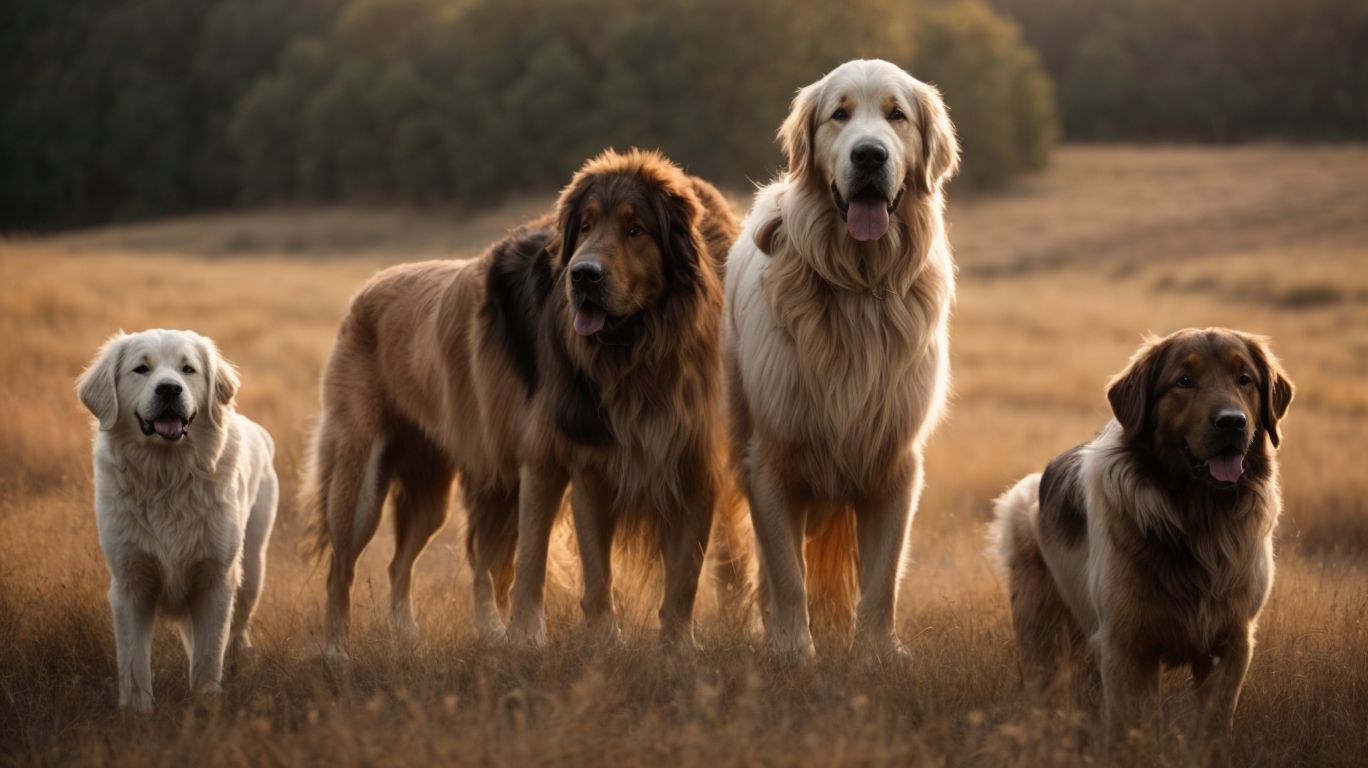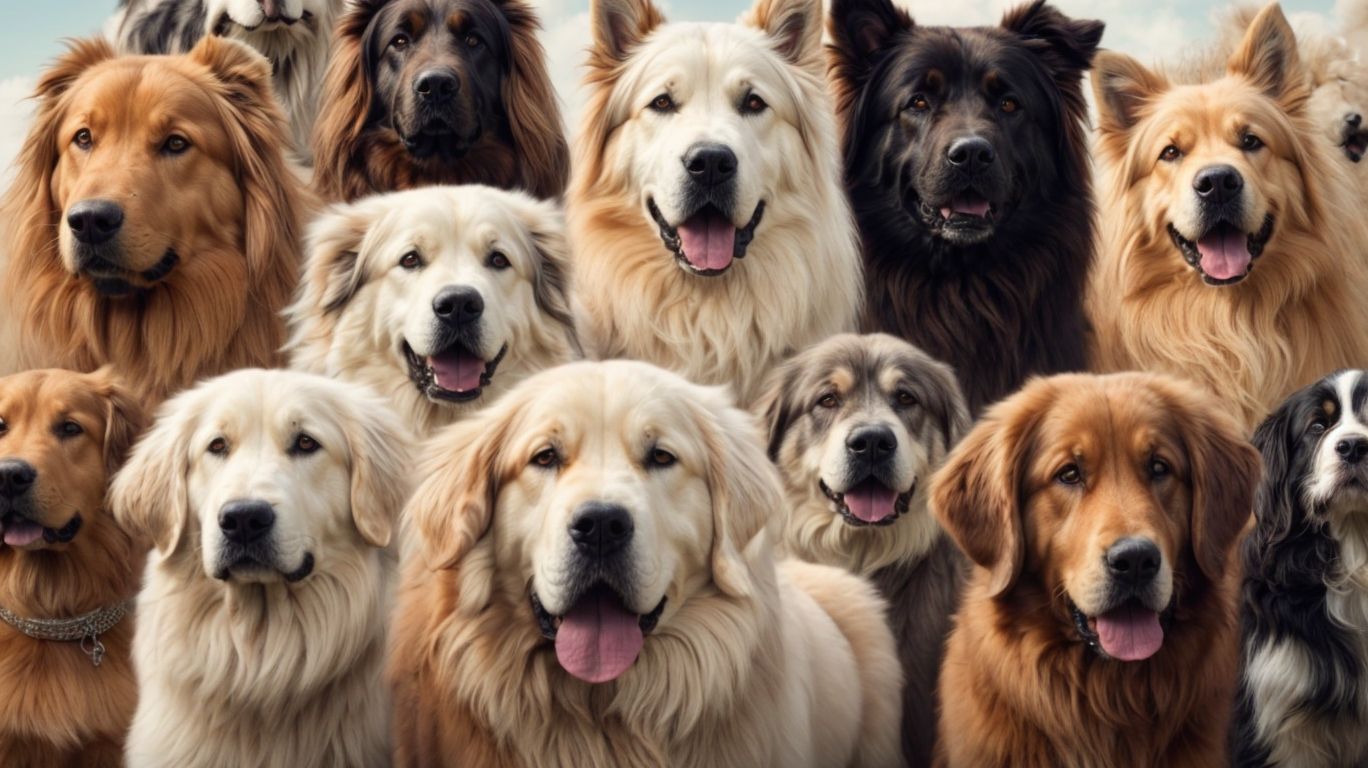
Comforting Your Senior Dog in Their Final Days: Emotional Support and Care
As our beloved furry friends age, it’s important for pet owners to be aware of the signs that their senior dog may be in their final days.
From changes in appetite and behavior to physical needs and emotional support, providing comfort for a senior dog in their final days requires special attention and care.
In this article, we’ll explore the signs that your dog may be reaching the end of their life, as well as practical ways to provide emotional support and physical care during this sensitive time.
Whether you’re preparing for the inevitable or simply want to be better equipped to care for your aging pet, read on to learn how to make your senior dog’s final days as comfortable as possible.
What Is Senior Dog?
A senior dog refers to an aging pet, often an elderly dog that requires specific attention and care, especially in its end-of-life stage.
As dogs age, they may experience a range of health issues such as arthritis, cognitive decline, and a weakened immune system. This necessitates tailored care such as regular veterinary check-ups, a balanced diet, and modified exercise routines to accommodate their changing abilities.
Senior dogs often need more comfortable living arrangements, such as orthopedic beds and easy access to food and water. End-of-life care for senior dogs involves providing them with love, comfort, and attention to ensure their final days are filled with dignity and peace.
What Are The Signs That Your Dog Is In Their Final Days?
Recognizing the signs that indicate a senior dog is in their final days is crucial, especially when dealing with terminal illness or old age. This allows for the provision of appropriate care and support.
As a senior dog approaches the end-of-life stage, there are several physical and behavioral indicators to look out for. Physically, weight loss, changes in appetite, decreased mobility, incontinence, and difficulty breathing are common signs. Behavioral cues may include increased restlessness, disorientation, decreased interest in activities, and changes in interaction with family members. Recognizing and understanding these signs can help caregivers make informed decisions about the dog’s comfort and well-being in their final days.
Decreased Appetite And Thirst
One of the signs that your senior dog is in their final days is a decreased appetite and thirst, which may signify the need for pain relief and comfort measures to support their well-being.
This decreased interest in food and water can be distressing for pet owners, but it’s essential to understand the potential causes behind it.
Common reasons for decreased appetite and thirst in senior dogs include dental issues, gastrointestinal problems, organ dysfunction, and pain from conditions like arthritis.
Addressing these underlying issues, providing pain relief, and making adjustments to their diet and environment can help improve their quality of life.
It’s crucial for pet parents to work closely with their veterinarian to ensure their senior dog’s well-being is prioritized during this phase.
Difficulty Moving And Standing
Observing your senior dog’s difficulty in moving and standing can indicate the need for enhanced mobility support and physical comfort measures in their final days.
It’s crucial to address the challenges related to a senior dog’s mobility, as they may struggle with arthritis, muscle weakness, or other age-related conditions that affect their ability to move comfortably. To provide physical comfort and support, consider investing in supportive bedding to cushion their joints, using ramps or steps to help them access higher areas, and introducing gentle exercises or physical therapy to maintain muscle strength and flexibility. Exploring joint supplements and anti-inflammatory medications with your veterinarian can further aid in managing their mobility and physical well-being.
Incontinence
Incontinence in a senior dog is a common sign of their final days. This issue can be challenging for both the senior dog and its owner.
Necessitating a focus on cleanliness, hygiene, and comfort to address their needs effectively. Proper hygiene and cleaning routines are crucial to ensure the dog’s living spaces remain comfortable and free from unpleasant odors.
Providing supportive and absorbent bedding, as well as easy access to the outdoors or designated toilet areas, can help maintain cleanliness and reduce stress for the senior dog. Regular grooming and healthcare check-ups also play a vital role in managing incontinence while ensuring the dog’s overall well-being.
Changes In Breathing
Significant changes in your senior dog’s breathing patterns can indicate respiratory distress, highlighting the necessity of effective pain management and supportive measures.
Senior dogs are more susceptible to respiratory issues due to age-related changes in their lung function, making it crucial to monitor their breathing closely. Respiratory distress can lead to discomfort and anxiety in senior dogs, impacting their overall well-being.
Implementing measures such as providing a comfortable environment, using air purifiers, and maintaining proper humidity levels can also contribute to supporting respiratory well-being in senior dogs.
Changes In Behavior
Observing significant changes in your senior dog’s behavior underscores the need for enhanced emotional support and attention to their mental well-being during their final days.
As senior dogs age, they may experience changes in their sleeping patterns, appetite, and behavior. These changes could be a sign of pain, discomfort, or cognitive decline. To improve their quality of life, it’s important to provide a comforting environment, extra affection, and gentle activities that suit their abilities. Regular vet check-ups and adjustments to their care routine, such as softer bedding or joint supplements, can also help keep them comfortable and content.
How To Provide Emotional Support For Your Senior Dog?
Providing emotional support for your senior dog involves offering love, companionship, and understanding to ensure their mental well-being and comfort during their final days.
Understanding your senior dog’s changing needs is crucial. Spending quality time with them, engaging in gentle activities they enjoy, and creating a peaceful environment can significantly enhance their emotional well-being.
Showing patience and empathy during moments of discomfort or confusion can provide reassurance. Ensuring their physical comfort through a cozy bed, regular grooming, and appropriate pain management can also contribute to their emotional stability. Integrating these elements into your senior dog’s daily routine can help them feel secure and loved.
Spend Quality Time Together
Spending quality time with your senior dog provides comfort, companionship, and the opportunity to create cherished memories during their final days.
As dogs age, they may need more care and affection to navigate their golden years. By dedicating time to them, you not only ensure their emotional well-being but also strengthen your bond.
Engaging in gentle grooming, leisurely strolls, and relaxed play sessions can bring immense joy to your furry friend. These moments contribute to their overall happiness and can help alleviate any anxiety or loneliness they may be experiencing. It’s a beautiful way to honor their loyalty and offer gratitude for the years of companionship they’ve given you.
Create A Comfortable Environment
Establishing a comfortable environment for your senior dog supports relaxation and contributes to a peaceful transition during their final days.
Creating a cozy and inviting space with soft, supportive bedding and gentle lighting can help ease any discomfort they may experience. Incorporating familiar scents and soothing music can also promote a sense of calmness, helping your senior dog feel more at ease.
Ensuring that their living area is free from clutter and obstacles can make it easier for them to navigate, minimizing any unnecessary stress. These thoughtful adjustments can make a significant difference in your senior dog’s quality of life as they navigate this stage of their journey.
Be Attentive To Your Dog’s Needs
Being attentive to your senior dog’s needs involves offering affection, attention, and patience to ensure their well-being and comfort in their final days.
This stage of their life requires understanding and compassion as they may experience physical discomfort and cognitive decline.
Providing a calm and familiar environment, maintaining a predictable routine, and engaging in gentle activities tailored to their abilities can help alleviate anxiety and enhance their emotional wellbeing.
Regular veterinary check-ups and adjustments to their diet and exercise routine can help manage age-related health issues, allowing your senior dog to maintain a good quality of life.
Talk To Your Dog
Engaging in gentle conversation with your senior dog provides a source of understanding, empathy, and spiritual support, contributing to their emotional well-being during their final days.
As dogs age, it’s important to acknowledge and understand the physical and emotional changes they go through. By talking to them, you create a comforting environment that recognizes their feelings and experiences.
Your empathetic communication fosters a deep emotional connection, providing reassurance and companionship during their twilight years. This soothing interaction can ease their anxiety and loneliness, ultimately improving their overall well-being.
The bond formed through conversations can also bring spiritual support, bringing solace and peace to both you and your senior canine companion.
What Are The Physical Needs Of A Senior Dog In Their Final Days?
Understanding and addressing the physical needs of a senior dog during their final days encompasses effective pain management and regular veterinary care to ensure their comfort and well-being.
As senior dogs age, they may experience joint pain, arthritis, and other musculoskeletal issues that can greatly impact their quality of life. It is crucial to provide them with comfortable bedding and support to ease the strain on their bodies.
Regular check-ups with a veterinarian are essential to monitor their overall health, address any emerging issues, and adjust their pain management plan as needed. By prioritizing their physical well-being, senior dogs can enjoy a more comfortable and fulfilling final stage of life.
Proper Nutrition And Hydration
Providing proper nutrition and hydration to your senior dog involves considering comfort measures and making informed end-of-life decision-making to support their well-being during their final days.
This can include adjusting their food and water intake to meet their changing needs, such as switching to softer foods or providing supplements to support joint health.
Maintaining proper hydration is crucial to their overall comfort. It’s important to monitor their water intake and provide easy access to clean water throughout the day.
As a dog ages, their appetite and ability to eat and drink may change, so it’s essential to consult with a veterinarian to tailor their diet and hydration to their individual circumstances.
Pain Management
Efficient pain management is essential for a senior dog’s comfort and well-being, often encompassing the principles of palliative care to ensure their quality of life during their final days.
This involves not only addressing physical discomfort but also providing emotional support for the senior dog.
Through a multimodal approach, including medication, physical therapy, and alternative therapies such as acupuncture or hydrotherapy, the aim is to minimize pain and promote mobility.
Supportive measures like creating a cozy and easily accessible environment, adjusting their diet to support joint health, and providing gentle exercise can significantly improve their overall physical well-being and happiness.
Regular Veterinary Care
Ensuring regular veterinary care for your senior dog is integral to maintaining their quality of life and engaging in effective end-of-life planning to support their well-being in their final days.
This vital aspect of care involves regular check-ups, vaccinations, and preventive treatments tailored to the specific needs of aging dogs.
Regular veterinary visits allow for early detection of age-related health issues, ensuring timely intervention and management. In addition, these visits provide an opportunity to discuss end-of-life care options, such as pain management and palliative care, to ensure that your senior dog’s comfort and dignity are prioritized.
Comfortable And Clean Living Space
Providing a comfortable and clean living space for your senior dog forms an essential part of the support system that contributes to their well-being and comfort during their final days.
As dogs age, they may experience mobility issues or arthritis, making it crucial to create a safe and supportive environment for them. A clean living space not only prevents health issues and discomfort but also promotes mental well-being.
Comfortable bedding, easy access to food and water, and a low-stress environment play pivotal roles in ensuring a high quality of life for your senior dog. Maintaining a clean living space helps to minimize the risk of infections and allergies, both of which can be more challenging for older dogs to handle.
How To Make The Final Days As Comfortable As Possible For Your Senior Dog?
Enhancing the comfort of your senior dog during their final days involves implementing specific measures that prioritize relaxation and establish a robust support network to ensure their well-being and peace.
This can include creating a cozy and quiet environment, providing soft bedding and gentle grooming to alleviate any discomfort.
Engaging in calming activities such as gentle walks and soothing music can contribute to their overall relaxation.
It’s also important to seek emotional support for both you and your senior dog by surrounding yourselves with understanding and empathetic individuals, such as friends, family, or a veterinary care team. This network can offer comfort and assistance during this challenging time, benefiting both you and your beloved senior dog.
Create A Routine
Establishing a routine for your senior dog offers a source of bonding, acts as a coping mechanism, and facilitates opportunities for memorialization, contributing to their comfort during their final days.
Consistency in activities, such as daily walks and mealtimes, provides reassurance and companionship for your senior dog. This regular schedule reduces anxiety and stress, offering a stable and predictable environment.
Having a routine enables you to create and cherish lasting memories with your beloved pet, serving as a beautiful way to honor their life. By incorporating activities that support their emotional well-being into their daily routine, you can provide comfort and care during their senior years.
Provide Adequate Rest And Sleep
Ensuring that your senior dog receives adequate rest and sleep in a peaceful environment contributes to their overall well-being and can serve as a valuable resource during the grieving process.
As senior dogs age, it becomes increasingly important to provide them with peaceful and comfortable sleeping environments. Quality rest is essential for their physical health and mental state. By creating a quiet and cozy space for your senior dog to relax and sleep undisturbed, you can significantly reduce their stress levels and promote healing.
In addition to a comfortable space, it’s also beneficial to provide familiar bedding and soothing sounds to help alleviate any grief or discomfort your senior dog may be experiencing. This can contribute to their emotional well-being and overall quality of life.
Keep Your Dog Clean And Groomed
Maintaining the cleanliness and grooming of your senior dog is essential, not only for hygiene but also as a form of support during the mourning process and potential pet loss.
Senior dogs may experience health issues that affect their ability to groom themselves effectively, making regular grooming sessions crucial for their overall well-being.
The act of grooming offers a bonding experience between the pet parent and the dog, creating moments of comfort and care during difficult times. This routine also ensures that the senior dog is kept comfortable and free from any discomfort, enhancing their quality of life as they age.
Monitor Your Dog’s Health Closely
Closely monitoring your senior dog’s health allows for the preservation of their legacy and remembrance, creating opportunities for afterlife acknowledgment and support.
As our beloved canines age, it becomes increasingly important to be attentive to their health needs. By doing so, we can ensure that they are comfortable and happy in their golden years, and also honor the memories they have created with us.
Monitoring their health closely not only allows us to provide them with the care and support they need, but it also enables us to cherish and celebrate the life they have lived. This attentiveness can also give us the peace of mind that we have done everything possible to keep our senior dogs healthy and acknowledge their significance in our lives.




No Comments